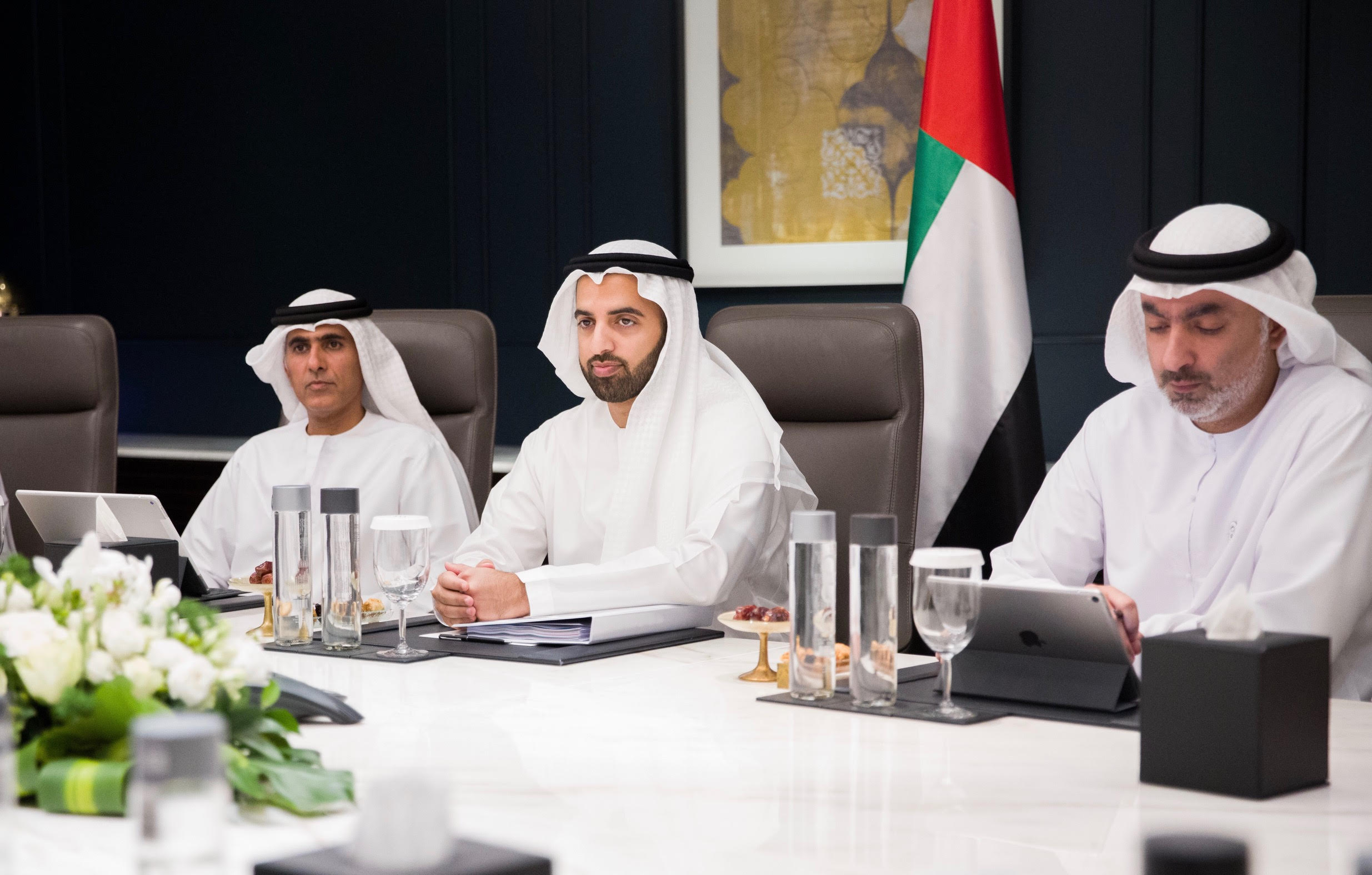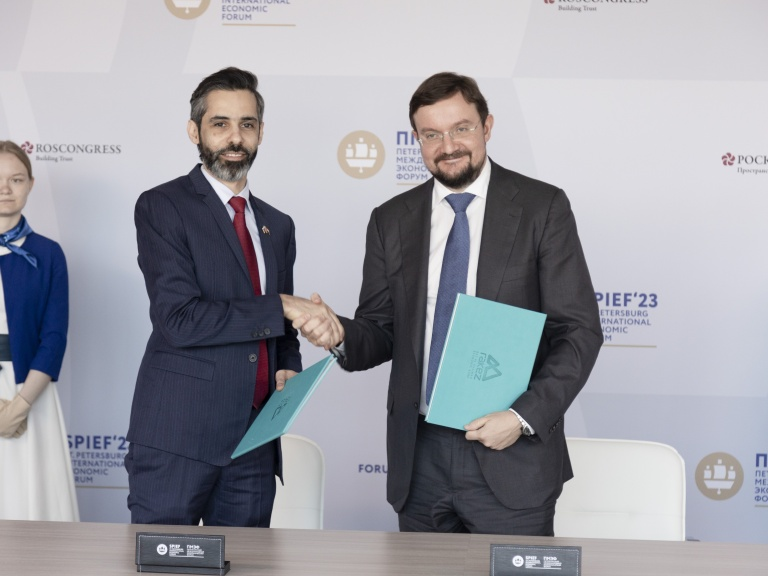 Web Content Viewer
Web Content Viewer
His Highness Sheikh Mohammed Bin Saud Bin Saqr Al Qasimi, Crown Prince of Ras Al Khaimah and Chairman of Executive Council, Chaired the Executive Board meeting. June 07,2018

His Highness Sheikh Mohammed Bin Saud Bin Saqr Al Qasimi, Crown Prince of Ras Al Khaimah and Chairman of Executive Council, Chaired the Executive Board meeting.
The council approved the previous meeting minutes and reviewed the topics listed on its agenda related to follow-up achievements and the development of the legislative system and the plans for digital and smart transformation.
Dr. Mohammed Abdul Latif Khalifa, Secretary-General of the Executive Council, clarified that the Council reviewed the Economic Development Committee’s report and its briefing on the measures taken by the Department of Economic Development (DED) to prepare its systems for implementing the decision of the UAE Cabinet on corporate social responsibility (CSR). In addition, the council reviewed statistics and trends of developing commercial licenses, as well as the structural characteristics for economic establishments and the 2017 Business Environment Index.
The Council then ordered that all measures must be taken to enhance the UAE’s competitiveness, attract investment and protect investor rights. The council also praised the incentives and economic facilities adopted to strengthen the mentioned trends. These trends include the extended grace period for professional license renewal, allowing the existence of more than one license per location, allowing the issuance of economic licenses without the need to provide an office for company branches from outside the Emirate within their first year, the canceling of pre-inspections when issuing new licenses for a number of activities and to apply the e-trading license for existing activities.
The Council then discussed the report of the Smart and Electronic Transformation Committee and the efforts to meet the requirements of advanced digital services. The council then called for the participation in the e- Government Maturity Assessment Project to measure the readiness of local governments to embrace digital transformation under the supervision of the Telecommunications Regulatory Authority (TRA). The Assessment Project is based on multiple axes including, leadership, strategy, governance, laws, regulations and policies, emerging techniques and technology.
The Council also stressed on the importance of benefiting from the assessment outputs for e-maturity to reach the desired levels in light of the UAE and Abu Dhabi’s vision. Whereas, the Electronic Government Authority was mandated to communicate with the relevant government authorities to address these requirements.
Moving on to the field of updating and developing the legislative system and modernizing laws and regulations, the Council approved the preparation and amendment of a number of legislations, namely the draft law on urban planning and development, the draft amendment on organizing the profession of contracting and the draft law on the use of land, the draft law regulating demolition and removal of construction waste, the draft public hygiene law. The list went on to include executive regulations to regulate the work of sewage tankers and executive regulations for the accreditation of training and consulting centers, scholarship destinations and food safety officials.
The Council also ordered conducting a study on the regulations governing the granting of event permits in Abu Dhabi and mandated the responsibility to the Ras Al Khaimah Tourism Development Authority.
In order to enhance Abu Dhabi’s aesthetic aspects and to preserve the cultural appearance and public health requirements, the Council approved the demolition and removal of old and abandoned buildings mechanism, which includes requirements, procedures and incentives to encourage owners to respond to orders associated with the matter.
The Council directed the preparation of a future vision and a planning study to re-organize agricultural areas inconsistent with the modern urban planning requirements, in a manner that provides the opportunity to diversify the use, division and sorting of land for residential purposes is in accordance with planning requirements that meet the desired urban objectives and that a district is chosen for a pilot phase.
The Council then reviewed a comparative study provided by the Customs Department regarding strengthening border inspection systems through the implementation of the latest technological systems in the field of container and vehicle inspection.
The Council then reviewed a report submitted by the Municipality Department on youth needs and services requirements in remote areas in light of a panel discussion organized by the Ras Al Khaimah Youth Council. The Council approved the implementation of a number of projects to meet those needs and instructed the competent authorities and government agencies to provide the necessary needs. This falls in line with the efforts to empower and support the youth and to provide opportunities them to enable them to perform their role in community in line with the UAE’s youth strategy.
Finally and in line with strengthening the strategic partnership with the Federal Government and develop cooperation, the Council approved a draft memorandum of understanding (MoU) between the Executive Council, the Ministry of Infrastructure Development (MOID) and the Sheikh Zayed Housing Program. The Municipality Department and the General Services Department were delegated to represent the Council in the MoU and comment on the draft’s outline in coordination and consultation with the Ministry. This MOU contributes to improving joint efforts and speeding up implementation of related initiatives and projects.






